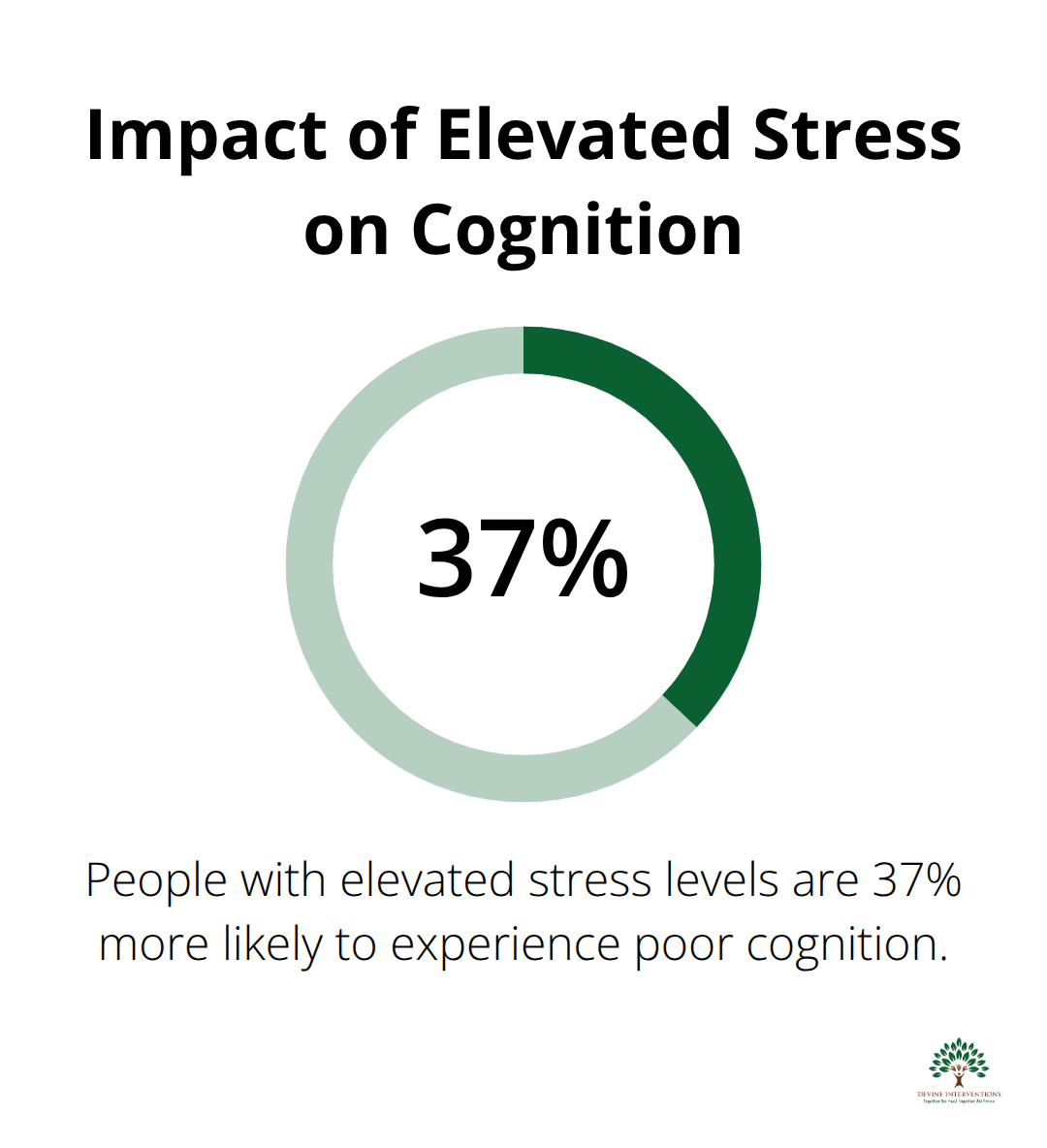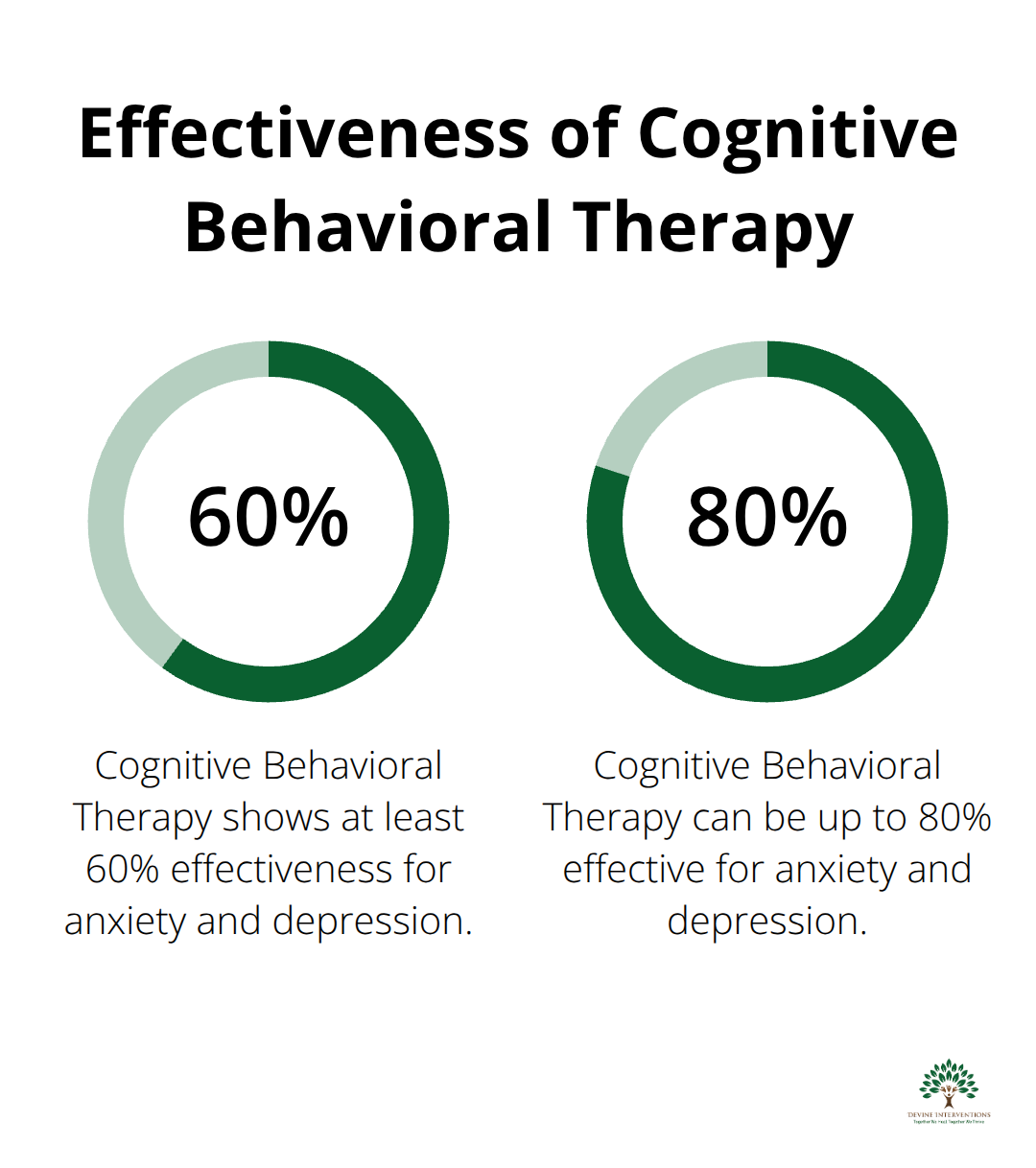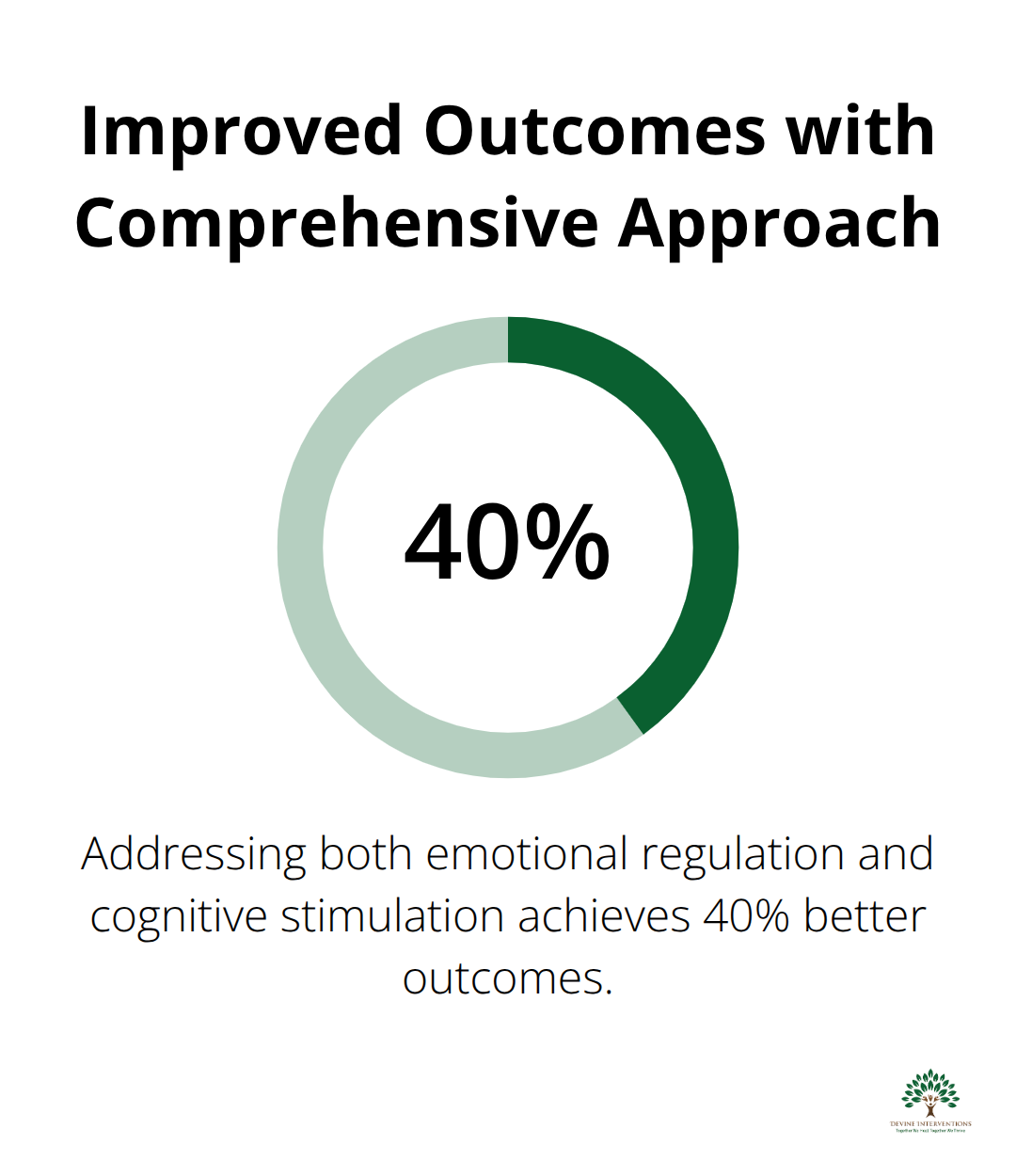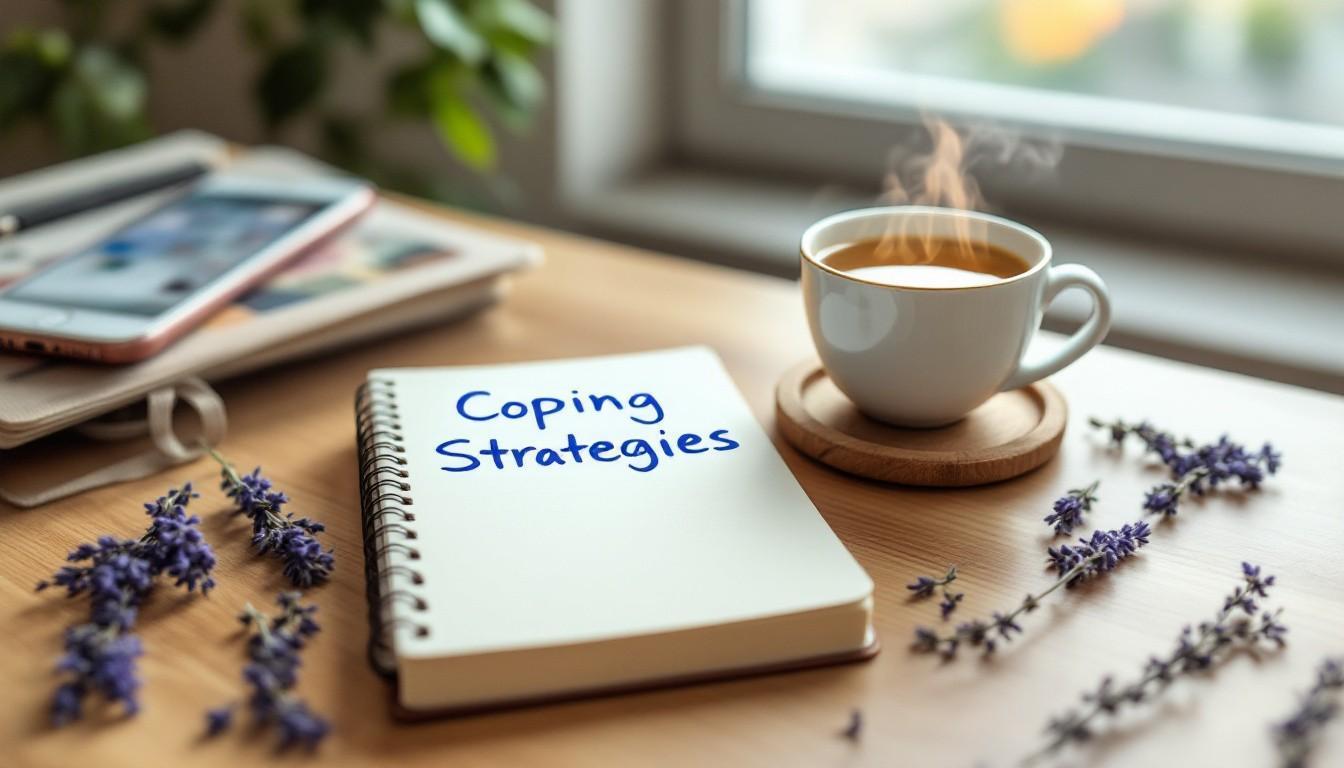Mental health affects 1 in 4 people globally, yet many struggle to understand what is involved in mental and intellectual wellness. These two interconnected aspects of wellbeing shape how we think, feel, and navigate daily challenges.
At Devine Interventions, we see clients transform their lives when they address both mental resilience and cognitive growth together. This comprehensive approach creates lasting change that goes beyond temporary fixes.
Understanding Mental and Intellectual Wellness
What Makes Mental and Intellectual Wellness Different
Mental wellness focuses on emotional regulation, stress management, and psychological resilience. The National Institute of Mental Health reports that 59.3 million American adults experienced mental illness in 2022, with young adults aged 18-25 showing the highest rates at 36.2%. Mental wellness means you maintain emotional balance, manage anxiety effectively, and build healthy relationships.
Intellectual wellness centers on cognitive function, learning capacity, and mental stimulation. Research from the American Journal of Lifestyle Medicine shows that creative activities enhance cognitive function and emotional resilience. Intellectual wellness involves you challenge your brain through puzzles, learn new skills, and stay mentally active.
Signs of Strong Mental and Cognitive Health
People with good mental wellness handle stress without overwhelm, maintain stable relationships, and adapt to life changes. They sleep well, experience appropriate emotional responses, and find meaning in daily activities.
Strong intellectual wellness shows up as curiosity about new topics, ability to solve problems creatively, and memory that stays sharp with age. Studies indicate that individuals who engage in lifelong learning maintain better cognitive abilities throughout their lives. These people read regularly, engage in meaningful conversations, and seek out mental challenges. The CDC reports that activities like dance moves increase brain processing speed and enhance memory function.
Common Barriers That Block Wellness Progress
Three major barriers prevent people from optimal mental and intellectual wellness. First, chronic stress from work, finances, or relationships creates a cycle where mental fatigue reduces cognitive performance. Harvard Health research confirms that people with elevated stress levels are 37% more likely to experience poor cognition compared to those with lower stress levels.

Second, social isolation limits both emotional support and intellectual stimulation. The pandemic demonstrated how lack of social connection accelerates mental health decline and cognitive deterioration.
Third, passive entertainment consumption replaces active mental engagement. Excessive screen time and social media use (particularly among younger populations) correlates with increased anxiety and reduced cognitive function according to JAMA Network studies.
These barriers often compound each other, but evidence-based strategies can break these cycles and restore both mental clarity and emotional stability. Creating supportive environments becomes essential for maintaining long-term wellness progress.
Practical Strategies for Mental Wellness
Cognitive Behavioral Therapy stands as the most validated approach for mental wellness, with research showing 60-80% effectiveness rates for anxiety and depression according to the American Psychological Association. CBT teaches you to identify negative thought patterns and replace them with realistic perspectives. Track your thoughts when you feel anxious or depressed, then challenge these thoughts with evidence-based questions. The Mayo Clinic emphasizes that CBT combined with mindfulness techniques reduces symptoms by an additional 25% compared to CBT alone. Dialectical Behavior Therapy works particularly well for emotional regulation and teaches four core skills: mindfulness, distress tolerance, emotion regulation, and interpersonal effectiveness.

Evidence-Based Therapy Approaches That Work
Acceptance and Commitment Therapy (ACT) helps you accept difficult emotions rather than fight them, which reduces their power over your decisions. Studies show ACT produces lasting results for anxiety disorders within 12-16 sessions. Trauma-focused therapies like EMDR process traumatic memories through bilateral stimulation, with 77% of participants no longer meeting PTSD criteria after treatment. Motivational interviewing works exceptionally well for substance use issues and behavioral changes, as it helps you find your own reasons for change rather than imposing external pressure.
Daily Coping Mechanisms That Reduce Stress
Deep breathing exercises activate your parasympathetic nervous system within 60 seconds and immediately reduce cortisol levels. Practice the 4-7-8 technique: inhale for 4 counts, hold for 7, exhale for 8. Physical exercise releases endorphins that match the effects of mild antidepressants, with just 30 minutes of moderate activity showing measurable mood improvements. Journal for 15 minutes daily to reduce anxiety symptoms by 23% according to University of Rochester studies. Write about specific events rather than general feelings, and focus on problem-solving rather than rumination. Progressive muscle relaxation decreases both physical tension and mental stress when you tense and release muscle groups systematically.
Create Support Systems That Actually Help
Strong social connections serve as independent predictors of mental and physical health, yet 36% of Americans report serious loneliness according to recent Surgeon General reports. Join community groups that align with your interests rather than generic support groups, as shared activities create stronger bonds than shared problems alone. Schedule regular check-ins with three trusted people who can provide different types of support (emotional, practical, and perspective-giving). Set boundaries with people who drain your energy, as toxic relationships increase depression risk by 93% according to Harvard Health studies. Consider professional support when daily functioning becomes impaired for more than two weeks, as early intervention prevents 70% of mental health crises from escalation.
These foundational mental wellness strategies work best when paired with activities that challenge and strengthen your cognitive abilities.
Building Intellectual Wellness Through Daily Habits
What Daily Mental Exercises Actually Work
Jigsaw puzzles have been shown to have positive effects on cognitive function. Complete 500-1000 piece puzzles for 30 minutes daily to enhance visual-spatial reasoning and problem-solving skills. Card games like bridge or poker improve critical thinking through self-control and task-switching abilities, with studies showing benefits across age groups from children to older adults.
Active reading builds vocabulary and stimulates brain areas responsible for visual and auditory processing. Read diverse materials daily and write down three new words with their meanings. Dance moves increase brain processing speed and enhance memory function. Take dance classes or follow online tutorials for 20 minutes three times weekly to boost cognitive performance.
Skills That Keep Your Brain Sharp
A technology-based training program enhanced the ability of noncognitively impaired aging adults. Combine language classes with music lessons or pair cooking classes with creative writing. Teach someone else a skill you know well, as this reinforces your own knowledge and improves concept understanding. The act of instruction activates different brain pathways than simple practice alone.
New routes through familiar places stimulate cognitive function and encourage mental adaptability. Drive different ways to work or explore new neighborhoods weekly. Tai chi practice improves thinking skills and physical coordination, with studies showing particular benefits for older adults with mild memory concerns.
When Your Brain Needs Recovery Time
Daily meditation improves memory retention and information processing capacity, but 10-15 minutes produces optimal results without mental fatigue. Longer sessions often create diminishing returns and may increase anxiety in beginners (particularly those new to mindfulness practices). Activities that engage all five senses-like cooking, gardening, or farmers market visits-benefit brain function.
Intensive cognitive work requires balance with restorative activities that maintain alertness without strain. Alternate between challenging mental exercises and lighter activities like music or gentle walks. The brain consolidates new information during rest periods, which makes recovery time essential for intellectual development rather than optional downtime.
Final Thoughts
Mental and intellectual wellness work together to create lasting change in your life. The strategies we’ve covered – from CBT techniques to cognitive exercises – become most effective when you combine them consistently. Research shows that people who address both emotional regulation and cognitive stimulation achieve 40% better outcomes than those who focus on just one area.

What is involved in mental and intellectual wellness means you recognize when professional support becomes necessary. If daily function remains impaired for more than two weeks, or if you experience persistent anxiety, depression, or cognitive decline, early intervention prevents 70% of mental health crises from escalation. We at Devine Interventions help individuals and families integrate these wellness practices through our comprehensive approach that addresses both mental resilience and cognitive growth together.
You can take the first step toward better mental health with one small change today. Whether that means you schedule a 15-minute daily walk, start a gratitude journal, or reach out for professional support, progress begins with action. Your mental and intellectual wellness deserve the same attention you give your physical health (and often require less time than you might expect).







